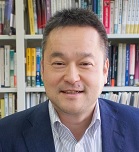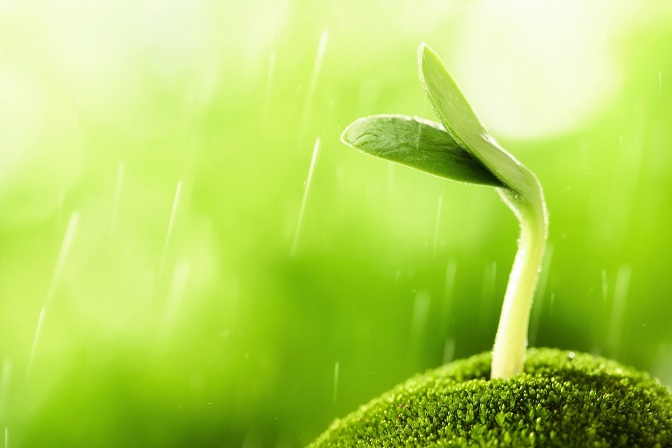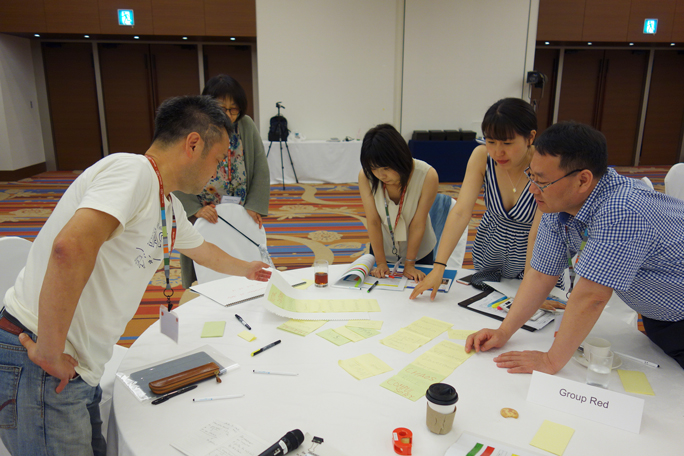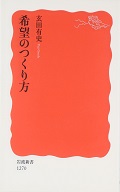From the “Social Sciences of Hope” to the “Social Sciences of Crisis Thinking”

Yuji Genda
Professor
Institute of Social Science
One of the life improvement projects undertaken by the Institute of Social Science is a study of the Social Sciences of Hope. In what kind of society is hope born and lost? After many interviews with earthquake and tsunami survivors in the Tohoku region, Professor Genda found that hope emerges after experiencing serious setbacks or challenges. Here, he talks about the background of the study of hope and a new project: “The Social Sciences of Crisis Thinking.”
The University of Tokyo is comprised of eleven institutes. Among the eleven, the Institute of Social Science (ISS) to which the writer belongs is one of the three humanities institutes, along with the Institute for Advanced Studies on Asia and the Historiographical Institute.

The ISS was established in the year following the end of World War II, and this academic year marks its 70th anniversary. Since its establishment, the Institute has focused on three objectives: to accurately understand not only the reality in Japan but also be able to compare it with the actual situations in other countries; to conduct comprehensive academic research in the field of social science; and to study the optimal ways of combining theory and practice in order to improve people’s lives. Needless to say, behind these objectives is regret and introspection about the roles the University played before and during the War.
As a discipline connected to the lives of people, the ISS has continued conducting integrated research programs known as Institute-wide Joint Research Projects for more than 50 years. The Institute consists of researchers from law, political science, economics and sociology, and we have worked together by overcoming the academic boundaries between us for the purpose of studying useful ways to improve life. For these Institute-wide Joint Research Projects, which run in cycles of 3-5 years, we have chosen themes which meet the needs of the times, such as “Fundamental Human Rights,” “Postwar Reforms,” “The Welfare State at a Crossroads” and “the 20th Century Global System.”
The Institute-wide Joint Research Project in which I have been deeply involved is “The Social Sciences of Hope,” which was started in 2005. Since the beginning of the 21st century, we have often heard the phrase “I have no hope.” Why? Hope exists in the territory of the individual’s heart, but it is also related to the state of society. The Social Sciences of Hope is the discipline that considers in what kind of societies hope is born and lost.
As a discipline connected to the lives of people, the ISS has continued conducting integrated research programs known as Institute-wide Joint Research Projects for more than 50 years. The Institute consists of researchers from law, political science, economics and sociology, and we have worked together by overcoming the academic boundaries between us for the purpose of studying useful ways to improve life. For these Institute-wide Joint Research Projects, which run in cycles of 3-5 years, we have chosen themes which meet the needs of the times, such as “Fundamental Human Rights,” “Postwar Reforms,” “The Welfare State at a Crossroads” and “the 20th Century Global System.”
The Institute-wide Joint Research Project in which I have been deeply involved is “The Social Sciences of Hope,” which was started in 2005. Since the beginning of the 21st century, we have often heard the phrase “I have no hope.” Why? Hope exists in the territory of the individual’s heart, but it is also related to the state of society. The Social Sciences of Hope is the discipline that considers in what kind of societies hope is born and lost.

We have discovered through surveys that the better people’s health, education, and work situations are, the higher tendency there is for them to have hope. On the other hand, the fewer friends and acquaintances whom one trusts, the more difficulty they have in maintaining hope. As we repeat these surveys, we find a decreasing number of people in Japan feel hope for the future. One underlying trend here is the spread of “social isolation” that is unique to Japan, where many feel that they have few friends compared to those in other countries.
In the Social Sciences of Hope, planting and nurturing the seed of hope through proactive efforts, such as meeting and conversing with many people outside the University, has been a proven and valued practice. What we learned from the people in Kamaishi City, Iwate Prefecture, with whom we have fostered a continuous relationship since before the 2011 disaster, is that hope comes from the process of experiencing a setback and overcoming it. While the experience of a setback or traumatic change may weaken one’s sense of happiness, it also becomes the trigger for generating hope. This is a common trend found in comparisons between Japan, the US and the UK. Currently, every country around the world, including Japan, is in the midst of various challenges. However, if you feel that hope lies beyond the challenges you must overcome, then courage may manifest itself that much sooner.
A new Institute-wide Joint Research Project, “Social Sciences of Crisis Thinking,” has started in the ISS this academic year. The description of this project on the ISS website reads as follows: “In what social conditions do people recognize a crisis and act on it? How does the recognition of imminent crises influence people’s daily lives? By using the results of this project, we will have a way to cope with the anxiety and impatience that surrounds modern society, and in this way we will continue to make effective use of social science."
It is essentially impossible to imagine a world without a crisis in our future. Rather, it is from a society confident that it can handle any possible future crisis that hope is born. I hope that you look forward to the outcomes of our project.
In the Social Sciences of Hope, planting and nurturing the seed of hope through proactive efforts, such as meeting and conversing with many people outside the University, has been a proven and valued practice. What we learned from the people in Kamaishi City, Iwate Prefecture, with whom we have fostered a continuous relationship since before the 2011 disaster, is that hope comes from the process of experiencing a setback and overcoming it. While the experience of a setback or traumatic change may weaken one’s sense of happiness, it also becomes the trigger for generating hope. This is a common trend found in comparisons between Japan, the US and the UK. Currently, every country around the world, including Japan, is in the midst of various challenges. However, if you feel that hope lies beyond the challenges you must overcome, then courage may manifest itself that much sooner.
A new Institute-wide Joint Research Project, “Social Sciences of Crisis Thinking,” has started in the ISS this academic year. The description of this project on the ISS website reads as follows: “In what social conditions do people recognize a crisis and act on it? How does the recognition of imminent crises influence people’s daily lives? By using the results of this project, we will have a way to cope with the anxiety and impatience that surrounds modern society, and in this way we will continue to make effective use of social science."
It is essentially impossible to imagine a world without a crisis in our future. Rather, it is from a society confident that it can handle any possible future crisis that hope is born. I hope that you look forward to the outcomes of our project.
Question: Is your research useful?
Answer: It is important for research to be useful, but before that, you should place value on the surprise, wonder and other initial raw emotions your research inspires in others.
(We have asked twelve professors who contributed articles to this issue to answer the above question in 60 words or fewer. Professor Genda's response appears here.)
Note: This article was originally printed in Tansei 33 (Japanese language only).
Answer: It is important for research to be useful, but before that, you should place value on the surprise, wonder and other initial raw emotions your research inspires in others.
(We have asked twelve professors who contributed articles to this issue to answer the above question in 60 words or fewer. Professor Genda's response appears here.)
Note: This article was originally printed in Tansei 33 (Japanese language only).







